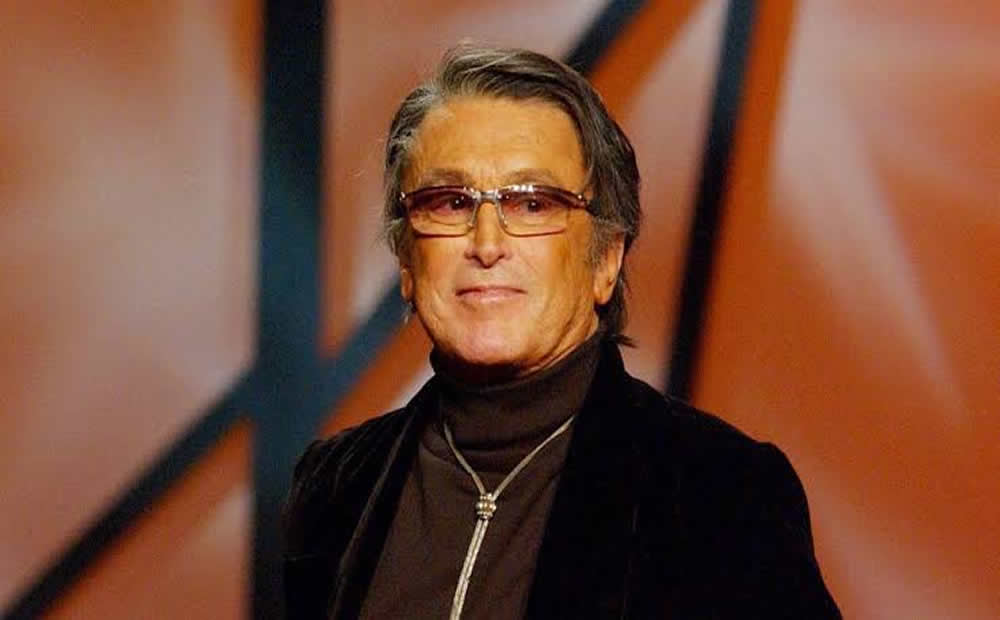Queried by a reporter as to his greatest ambition, the great man says, “To become immortal, and then to die.” It’s a line from Breathless, uttered by the director Jean-Pierre Melville (and based on Nabokov), and it perfectly fits the career, life and legend of Robert Evans, who finally reached the second goal just yesterday, a blessedly long time after having achieved the first.
No matter how many scandals, divorces, drug charges, flop films and assorted other reversals the veteran studio executive and producer experienced — and survived — over his seven decades in Hollywood, Evans always managed to stay in the picture, as the title of his autobiography suggests. To continue the literary allusions, he was the last tycoon, in the sense that his career harked back to the glamor days of the old Hollywood where he was allegedly “discovered” by Norma Shearer by the Beverly Hills Hotel pool. I always think of him as the heir to Kirk Douglas’ ruthless but charismatic producer in that most perfect of Hollywood studio self-reflections, The Bad and the Beautiful; in the final scene, after all his collaborators have washed their hands of him after enduring so much abuse, they can’t help but to lean in to listen when he calls with a proposal for a new picture. Evans was a star, and everyone who came after him were just suits.
During Paramount’s glory period, from the late 1960s through the mid-1970s, Evans was like the sun god, emanating sun-tanned good looks and glamor while presiding over a string of some of the most successful and/or esteemed films of the period, from Rosemary’s Baby, Romeo and Juliet, Love Story and Harold and Maude through The Godfather, Serpico, Chinatown and The Conversation. There were big flops and embarrassments, too, of course, but Paramount was the place to be: When I visited the reproduction of the exterior of Hollywood Boulevard spread across two soundstages on the Paramount lot for John Schlesinger’s ill-begotten take on The Day of the Locust, I felt like I’d been transported back to the Hollywood of the mid-1930s. (At yet another unforgettable Paramount event, the premiere party for the unspeakably awful Won Ton Ton, the Dog Who Saved Hollywood, in 1976, the studio shamelessly trotted out Adolph Zukor, the 103-year old co-founder of Paramount, to pose with the pooch, an event that proved too much for the old man; he died three weeks later).
The other place to be was Evans’ home on Woodland Drive in Beverly Hills, no matter the ups and downs of the host’s circumstances; on one occasion I was asked to wait for a few minutes before entering the property because frequent house guest Henry Kissinger was running late and hadn’t left yet. Of course it is no longer just something knowingly winked at that Evans’ pad was the site of innumerable parties featuring innumerable young women hoping to get noticed in Hollywood, that Warren and Jack hung out there a lot, that Brett Ratner basically lived there for years, partaking in all there was to partake of. But the other side of that coin is that Evans was married seven times. What man these days gets married seven times unless he is some variety of hopeless romantic imagining that, one day, he’ll get it right?
As a producer and a man, the allure of romance and crime — sometimes separately, even better mixed together — hit Evans where it counted most and saw its greatest synthesis in Chinatown. He personally produced about a dozen more films, some of which did better than others but none that is mentioned anymore: When was the last time you discussed, or even thought of, Black Sunday, Players, Urban Cowboy, Sliver, Jade, The Phantom, The Saint or the remake of The Out-of-Towners? And we mustn’t forget that the sequel to Chinatown, called The Two Jakes, part of what was meant to be a trilogy, was shut down on the eve of shooting in 1985 because Evans, cast as the co-lead alongside Nicholson, reportedly refused to submit to a period haircut.
And yet Evans remained very much in touch with what was going on, the films new directors were making, meeting the latest aspiring filmmakers. The first time I was invited up to the house, along with my wife and a couple of collaborators, was to screen a documentary we had made about Hollywood that he wanted to see. With all of us ensconced in his legendary screening room, Evans kept delivering anecdotes related to the various filmmakers and actors we had interviewed for the film — Michael Douglas, Gloria Stuart, Mel Gibson, Charlton Heston, John Travolta, Warren, of course — that were often more personal and revealing than those in the doc.
Not long after we were invited back for an evening centered around a screening of Alfonso Cuaron’s raunchy breakthrough film, Y Tu Mama Tambien, which floored everyone. Evans was, of course, a great raconteur and reveled in being the host and center of attention, but nonetheless asked about us and what we were doing. Alan, the host’s indispensable butler, tended to everything with discreet, all-knowing efficiency.
Just as many artists — painters, composers, writers — have their distinct periods, and many filmmakers have relatively brief stretches when they do their most personal and fully charged work, Evans had that as an executive and producer; what he did between 1966, when Charles Bluhdorn named the “kid” vice president of production at Paramount, and 1974, when Chinatown, his first personal production, was released, has to be as good a run as any executive and/or producer has had in the modern era. After that, he continued to talk a great game, but the youthful magic had vanished or migrated elsewhere. Robert Evans made sure to play the game right: He became immortal, and then died — old.
Source: https://www.hollywoodreporter.com
